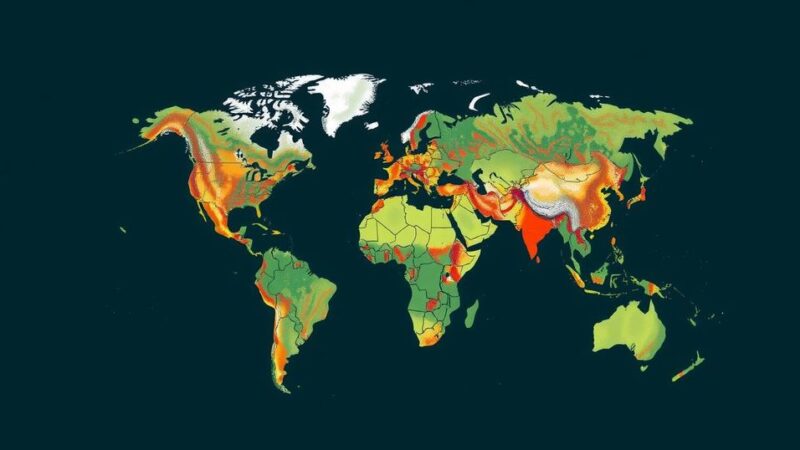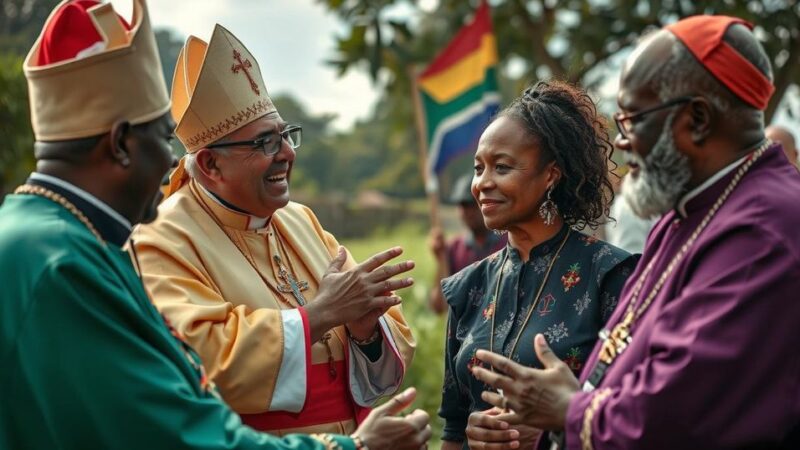At the G20 Summit, Brazilian President Lula urged developed nations to advance their climate neutrality targets from 2050 to 2040 or 2045. He emphasized the importance of accountability for historic greenhouse gas emissions and initiated a Task Force to enhance collective efforts against climate change. Lula highlighted Brazil’s commitment to renewable energy and conservation while calling for increased financial support from wealthier nations to bolster global climate initiatives.
During the G20 Summit held in Rio de Janeiro, Brazilian President Luiz Inácio da Silva urged developed nations to accelerate their climate neutrality goals, proposing that they shift their target from 2050 to as early as 2040 or 2045. President Lula emphasized that climate action should reflect the principle of common but differentiated responsibilities, highlighting the necessity for wealthier countries to acknowledge their historical greenhouse gas contributions. He articulated the urgency stemming from current climate crises, noting the increasing frequency of extreme weather events, and stated that past agreements have fallen short of necessary outcomes. Additionally, Lula launched the Task Force for Global Mobilization against Climate Change, emphasizing the need for G20 members to enhance their Nationally Determined Contributions (NDCs) in alignment with limiting global warming to 1.5 degrees Celsius. Brazil, which has made considerable strides in renewable energy, aims for significant reductions in emissions, particularly through diminished deforestation rates. The President articulated a firm commitment to enhancing conservation efforts, particularly in the Amazon, and recognized the vital role played by indigenous communities. He has called upon developed nations for financial support to enable more substantial climate actions, stressing that adequate funding is crucial for maintaining ambition in climate goals. As the spotlight shifts toward COP30, Lula reiterated the importance of making headway on climate agreements and proposed the establishment of a Climate Change Council under the UN to unify global efforts for more effective climate action. In conclusion, Lula’s appeals underscore the urgent need for collective action against climate change, stressing accountability, financial commitment, and the importance of a unified global strategy. The Brazilian leadership at the G20 illustrates an ongoing commitment to climate justice as part of a broader initiative for sustainable development.
The article discusses Brazilian President Luiz Inácio da Silva’s advocacy for enhanced climate commitments from developed nations during the G20 Summit in Rio de Janeiro. President Lula’s remarks center around the urgency of climate action, highlighting the need for developed countries, which historically have contributed the most to greenhouse gas emissions, to assume greater responsibility. By proposing an advanced target for climate neutrality, Lula seeks to foster international collaboration in the wake of ongoing climate challenges and to promote a just approach to climate action, acknowledging the disparities between developed and developing nations. The focus on Brazil’s leadership in renewable energy and conservation efforts illustrates the country’s commitment to addressing climate change, aligning with broader global initiatives to manage ecological impacts while enhancing sustainable practices. Lula’s comments also reflect a broader frustration with past agreements not delivering on their promises and a call for renewed ambition in international climate negotiations.
President Lula’s address at the G20 Summit articulates a powerful call for action and accountability regarding climate commitments from developed nations. By proposing earlier targets for climate neutrality and emphasizing the critical importance of maintaining ambition through proper funding, he seeks to bridge the climate action gap. Lula’s role in advocating for justice, equity, and international cooperation culminates in a hopeful vision for future climate discussions, particularly with COP30 approaching, marking a pivotal time for global climate diplomacy.
Original Source: en.mercopress.com

